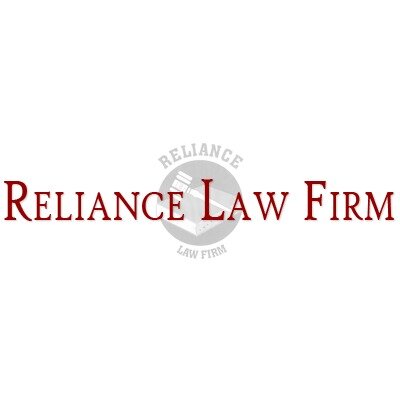Best Labor Law Lawyers in Bhaktapur
Share your needs with us, get contacted by law firms.
Free. Takes 2 min.
List of the best lawyers in Bhaktapur, Nepal
About Labor Law Law in Bhaktapur, Nepal
Labor Law in Bhaktapur, Nepal is governed by the Labour Act 2074 (2017) and Labour Rules 2075 (2018). These laws aim to ensure the rights, interests, and safety of workers in Nepal. It includes sections on working hours, overtime, holidays, health and safety, dismissal, and childbirth leave among others. It applies to industries, enterprises, or establishments, and covers all employees within those, except those who serve in managerial positions.
Why You May Need a Lawyer
Employment disputes, understanding and drafting contracts, resolving health and safety issues, and ensuring compliance with labor laws are all complex processes that require extensive knowledge of Nepal's labor laws. If you are an employee with grievances against your employer, or an employer facing potential formal labor complaints, a lawyer can guide you through the legal process offering advice, advocacy, and protection of your rights, fair treatment, and benefits.
Local Laws Overview
The Labor Act 2074 in Bhaktapur, Nepal prescribes maximum working hours, overtime payment, maternity and paternity leave, severance pay, and procedures for the termination of employment contracts. The Act also provides for compensation in the event of occupational injuries or diseases, prohibits child labor, and sets forth provisions for the fair treatment of employees. In addition, it provides clear guidelines for the resolution of disputes via collective bargaining, mediation, or the Labor Court.
Frequently Asked Questions
What are the benefits guaranteed to workers under the Labor Act?
The Labor Act, 2074 guarantees benefits including, but not limited to, provident fund, gratuity, insurance, compensation in case of injury at work, maternity leave, sick leave, and annual leave.
What are the maximum work hours under the Act?
The Labor Act prescribes a maximum of 48 hours of work per week and 8 hours per day. Overtime is permitted for up to 4 hours a day, with payment at the rate of one and a half times the normal wage.
What are the provisions for maternity leave?
As per the Act, a pregnant worker is entitled to 98 days of maternity leave with full pay, which can commence up to 15 days before the estimated delivery date.
Can an employee be terminated without reason?
Employers must have valid grounds for terminating an employee like incompetence, misconduct, or redundancy, and need to follow due process, including serving a proper notice and settling all financial dues before termination.
What happens in cases of employment disputes?
If an employment dispute arises, it has to be dealt with in stages, starting with internal resolution, then mediation, and if these fail, the case can be escalated to the Labor Court.
Additional Resources
The Department of Labour (DoL) and the Ministry of Labour and Employment provide resources and help with employment issues. Additionally, the International Labour Organization (ILO) country office for Nepal provides tools and supports on labor rights and standards.
Next Steps
If you require legal assistance, consult with a lawyer experienced in labor law. They can help you understand your rights, navigate the complex legal system, and advocate for you in negotiations or court. Consider free consultations or services offered by legal aid organizations or law schools in your area.
Lawzana helps you find the best lawyers and law firms in Bhaktapur through a curated and pre-screened list of qualified legal professionals. Our platform offers rankings and detailed profiles of attorneys and law firms, allowing you to compare based on practice areas, including Labor Law, experience, and client feedback.
Each profile includes a description of the firm's areas of practice, client reviews, team members and partners, year of establishment, spoken languages, office locations, contact information, social media presence, and any published articles or resources. Most firms on our platform speak English and are experienced in both local and international legal matters.
Get a quote from top-rated law firms in Bhaktapur, Nepal — quickly, securely, and without unnecessary hassle.
Disclaimer:
The information provided on this page is for general informational purposes only and does not constitute legal advice. While we strive to ensure the accuracy and relevance of the content, legal information may change over time, and interpretations of the law can vary. You should always consult with a qualified legal professional for advice specific to your situation.
We disclaim all liability for actions taken or not taken based on the content of this page. If you believe any information is incorrect or outdated, please contact us, and we will review and update it where appropriate.








